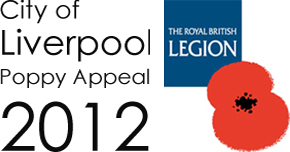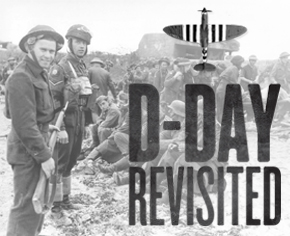Search

About
Liverpool Blitz 70! was a whole city event which took place from Saturday 30th April to Monday 2nd May to mark the 70th anniversary of the May Blitz of 1941.
Whilst giving proper respect to those who lost their lives during the bomb raids of the Second World War, the event was intended to be a celebration of the spirit of the Blitz and indeed, the spirit of Liverpool!
All funds raised went to supporting British war veterans via two charities: D-Day Revisited and the Royal British Legion City of Liverpool Branch.Topics
- Events (18)
- History (22)
- Personal Accounts (6)
- Press (1)
- Uncategorised (1)
Archives
- December 2015 (1)
- October 2013 (1)
- March 2013 (1)
- July 2012 (1)
- August 2011 (1)
- July 2011 (1)
- May 2011 (5)
- April 2011 (12)
- March 2011 (7)
- February 2011 (8)
- January 2011 (7)
Tags
70th anniversary 1940s singer air raid air raid shelter air raid siren birkenhead blitz blitz and peaces blitz anniversary blitz anniversary parade blitz spirit blitz theme bombing bootle churchill church street co-op shelter corn exchange evacuation film george formby heather marie history home front liverpool liverpool blitz 70 liverpool blitz anniversary liverpool city centre liverpool event luftwaffe may blitz merseyside fire service museum mill road hospital northern forties pitt street press punch and judy remembrance spirit of liverpool ss malakand veterans' charity fundraiser veterans parade women at war world war II wwii re-enactment
Tag Archives: film
Events History EventsThe George Formby Story!
April 5, 2011 – 20:10
Born and raised in the northwest of England, George Formby was a well loved singer-songwriter and comedian. Remembered fondly for playing the banjo ukulele or banjolele and as a singer of light, comical songs, he became a popular star of stage and screen. Between 1934 and 1945 Formby was widely recognised as the top comedian in British cinema.

Formby endeared himself to his audiences with his cheeky Lancashire humour and folksy northern persona. In film and on stage, he generally adopted the character of an honest, good-hearted but accident-prone innocent using the phrases: “It’s turned out nice again!” as an opening line; “Ooh, mother!” when escaping from trouble; and a timid “Never touched me!” after losing a fistfight.
Formby appeared in the 1937 Royal Variety Performance and entertained troops with Entertainments National Service Association in Europe and North Africa during World War II. He received an OBE in 1946. His most popular film, still regarded as probably his best, is the espionage comedy ‘Let George Do It‘, in which he is a member of a concert party, takes the wrong ship by mistake during a blackout, and finds himself in Norway (mistaking Bergen for Blackpool) as a secret agent. In one dream sequence he punches Hitler on the nose and addresses him as a “windbag“.
We are delighted that local performer, Derek Herbert, will be sharing his “George Formby Story” each day at the Liverpool Blitz 70! event on the Church Street stage.
Derek’s entertaining verbal and musical tribute act to George Formby includes a light-hearted talk on his life, self-accompanied by both ukulele and ukulele-banjo, during which Derek encourages audience participation. An accomplished singer and musician, Derek studied drama and music at the renowned Crane Studios in Liverpool and has a wealth of musical theatre experience.
The Sound of the Air Raid Siren
January 28, 2011 – 10:00
Air raid sirens first sounded the warning in London in September 1939 shortly after the outbreak of war with Germany. During the May Blitz of 1941, the frightening sound of the air raid siren could be heard across Liverpool several times each day.

The “Carter” air raid siren, manufactured by Gents of Leicestershire was used exclusively in Britain throughout World War II. The sirens made a very loud and long signal or warning sound. For an alert, the siren sound pitch rose and fell alternately, whereas the “All Clear” was a continuous sound from the siren.
When people heard the siren they would stop what they were doing and make for shelter. Shelters varied from underground stations, to smaller prefabricated Anderson and Morrison shelters. If the bombing seemed light, many people preferred to stay in their homes under the stairs. Government warning messages describing how best to react if the siren sounds, were broadcasted to the general public over the wireless and at the pictures.
Volunteer air raid precaution (ARP) wardens would protect civilians from the danger of air-raids as much as possible during a bomb attack; directing people to the nearest shelter and using their knowledge of the local area to help find and reunite family members who had been separated in the mad rush to escape the bombing.


 About
About